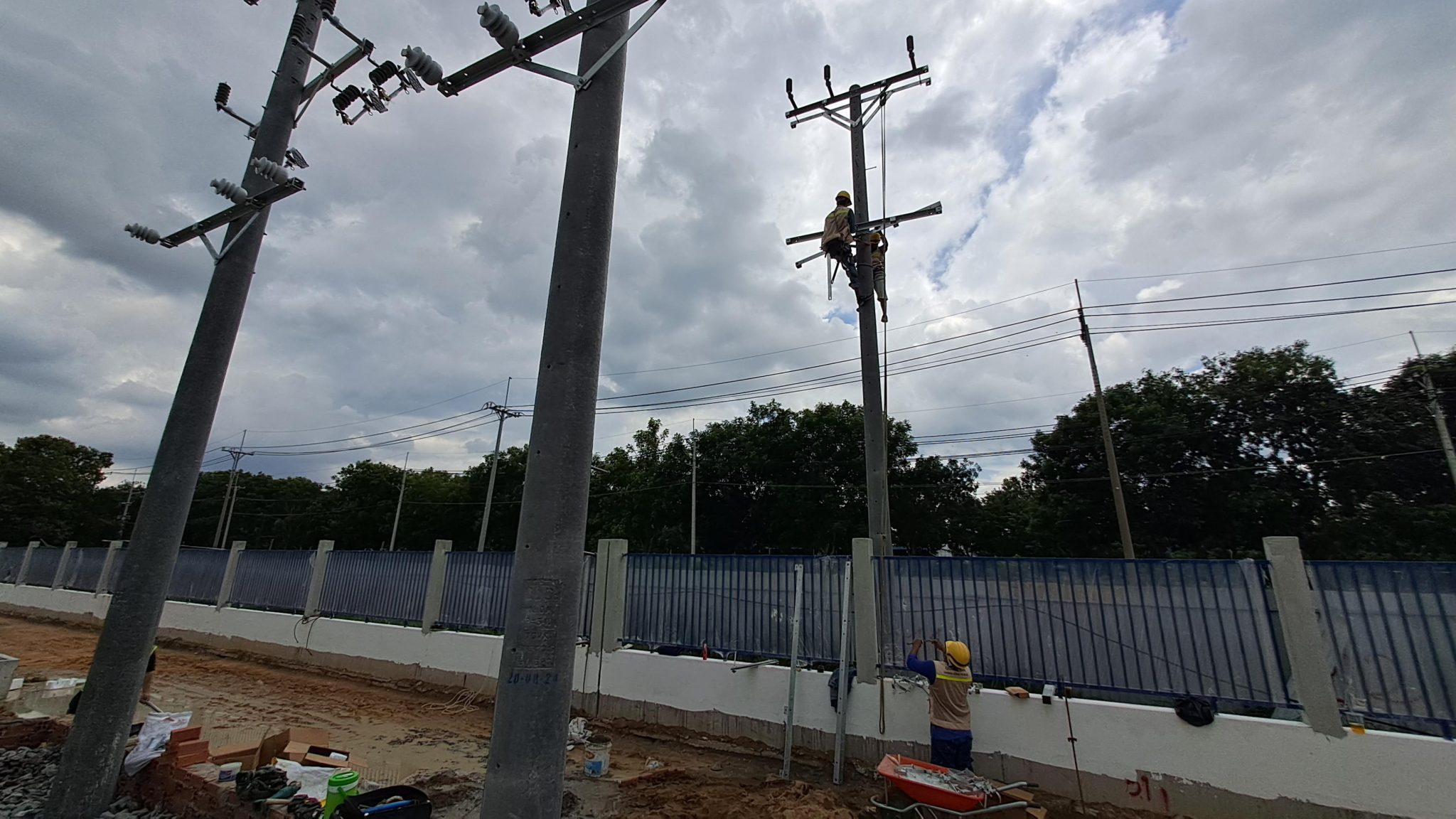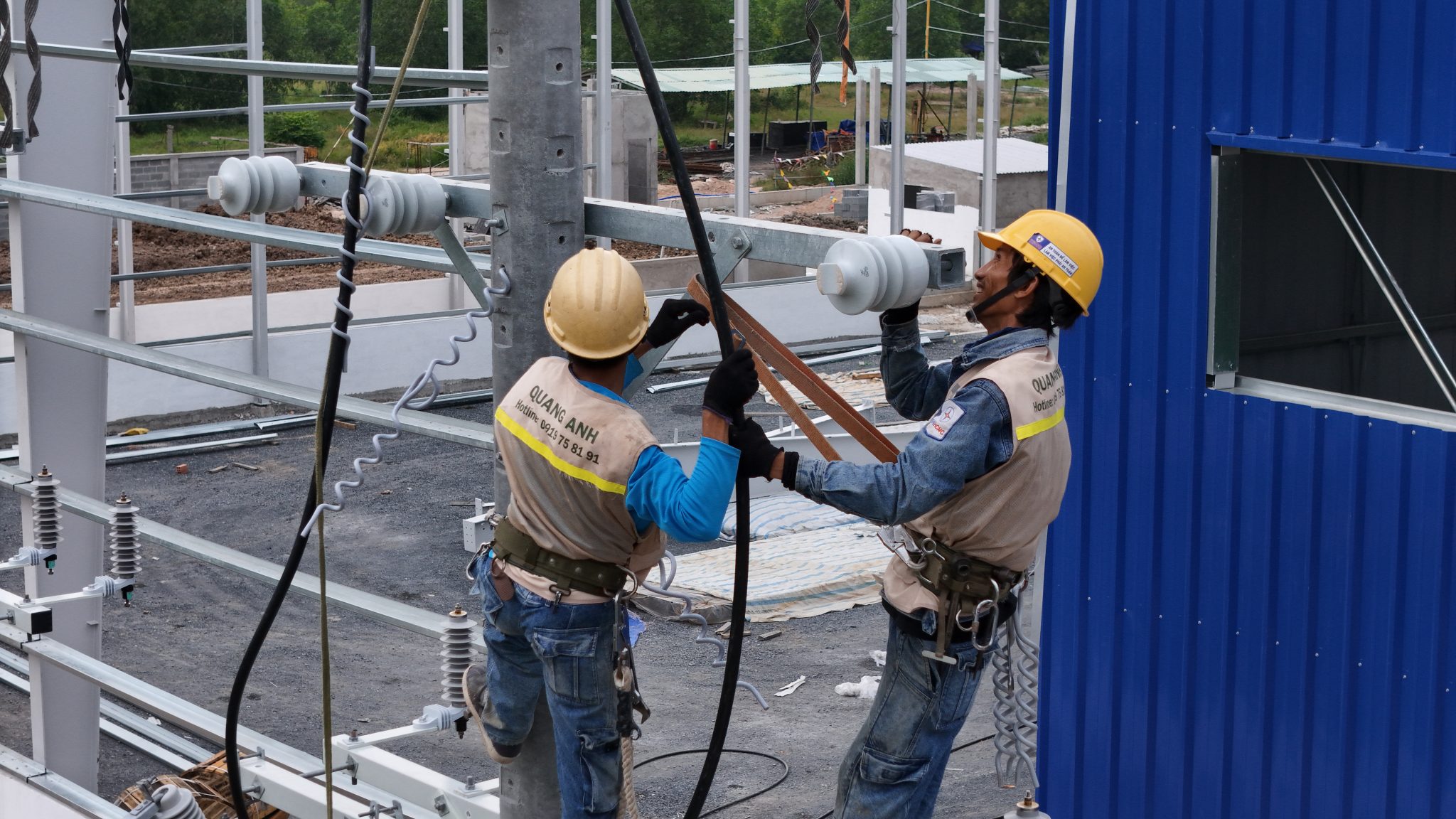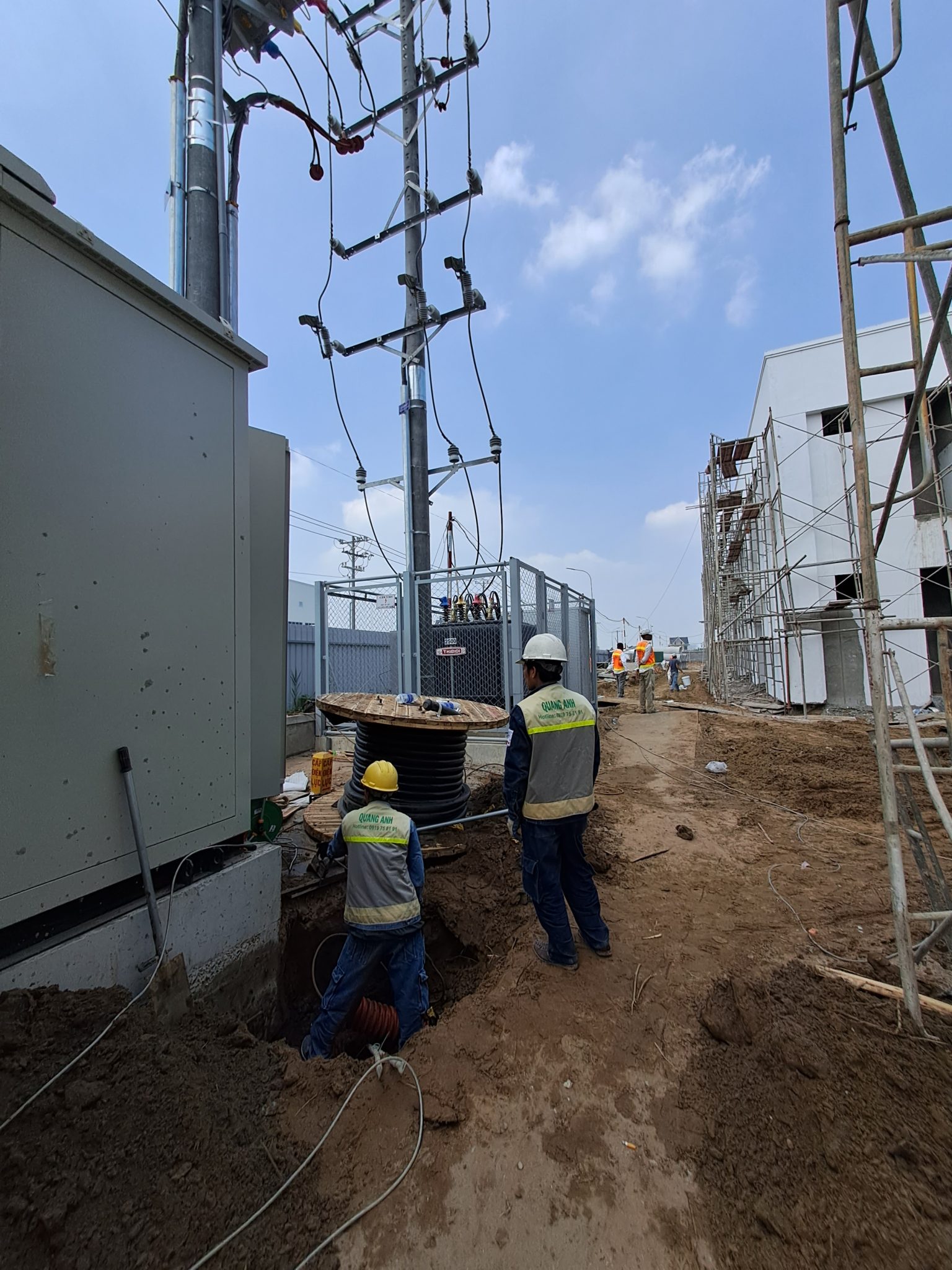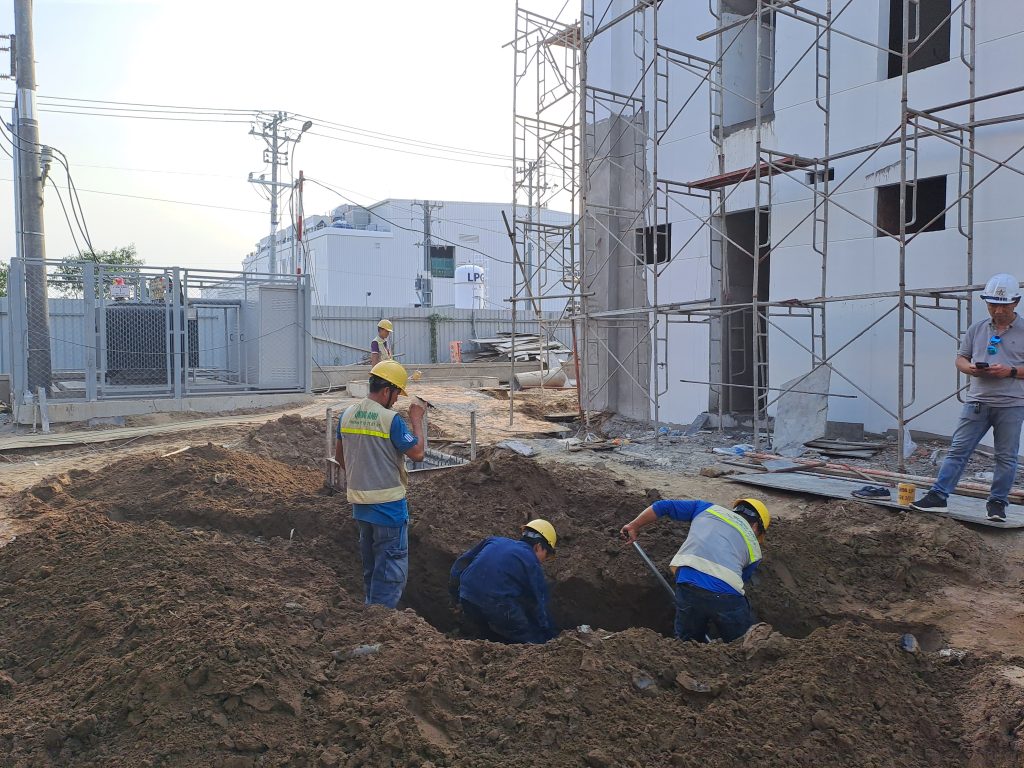News
Legal Processes and Procedures for Building Electric Vehicle Charging Stations in Vietnam
To build an EV charging station in Vietnam, it is necessary to follow the legal procedure with important documents such as the land use right certificate, construction permit, business licenses, and safety certifications.
Procedure for applying for Land Use Right Certificate for charging stations
The Land Use Right Certificate is required for building EV charging stations. It is an essential document to prove ownership or lease rights at the proposed location. Ensure that your application contains all the information regarding legal land use rights according to regulations.
To legally and effectively deploy an EV charging station, obtaining the Land Use Right Certificate is the first indispensable step. Here is the detailed procedure you need to follow:
- Prepare necessary documents
- Firstly, identify and gather all related documents regarding land use rights or documentation proving ownership or lease rights at the proposed installation site. This is the first legal basis for proceeding with the construction of electrical charging infrastructure.
- Next, prepare a construction dossier with detailed technical drawings for the construction permit application.
- Ensure all documents on electrical safety, fire safety (PCCC), and power supply contracts from the electricity company are fully collected.
- Procedure for Land Use Right Certificate (LURC) application
- First, prepare a compliant file including land documents, detailed construction plans, and related commitments.
- The LURC application is submitted at the land registration office under the Department of Natural Resources and Environment or the district-level People’s Committee, where the land is located.
- The competent authorities will then inspect and verify the land status and land use planning according to current legal provisions (Decree 35/2023/ND-CP).
- Since EV charging stations are not among the structures exempt from construction permits, construction permit application procedures must be conducted simultaneously.
- Regulations to comply with
- Land use must be compatible with the approved planning and current usage objectives, ensuring no violation of land and construction laws.
- Conduct reviews and ensure safety regarding fire protection, electrical standards, and grid connections to avoid risks in the charging station’s operation.
- Summary of the procedure
- Comprehensively prepare legal documents on land use rights and construction technical files.
- Submit the LURC application to the competent authorities.
- Apply for a construction permit, attached with the LURC dossier.
- Complete all procedures and certifications about electrical safety and fire safety.
- Sign a power supply contract with the electricity unit before proceeding with the construction and operation of the charging station after being licensed.

Procedure for applying for Construction Permit for EV charging stations.
Building an EV charging station requires a construction permit. The application includes detailed technical drawings, the land use right certificate, and related planning documents. This procedure needs to comply with current legal requirements to ensure the legality of the construction.
The process of applying for a construction permit for an EV charging station is complex, requiring strict compliance with the Construction Law 2014 and its amendments in Law No. 62/2020. According to Clause 2, Article 89 of this Law, charging station structures are not exempt from construction permits. Therefore, investors should pay attention to the following steps to ensure a smooth process:
- Prepare application documents: The application requires a complete application form for a construction permit, design drawings of the charging station, and documents proving land use rights. Related planning documents should also be attached.
- Compliance with technical standards: The charging station must meet technical standards and safety measures for electricity, fire safety as guided by the Ministry of Construction, as pointed out in recent releases and regulations.
- Check planning and land use purposes: This is a necessary step to ensure the project aligns with local electric vehicle charging infrastructure development plans and complies with Decree 35/2023/ND-CP.
- Submit the application to the competent authority: The application will be submitted at the Project Management Board, Urban Management Office, or district-level People’s Committee, depending on the construction site, to apply for a permit.
- Wait for review and licensing: The review and licensing of construction are conducted according to the legal timeframe in effect.
The Ministry of Construction has implemented Decision 766/QD-BXD dated 24/07/2023 to concretize Decision 876/QD-TTg, emphasizing planning, system standards, and fire safety for charging stations. Document 4338/BXD-HDXD in 2023 provides detailed guidance on the conditions for construction permits according to Construction Law and Decree 35/2023/ND-CP.
Following the steps in this process ensures the legality and safety of building an EV charging station.

Electric Business License and Electricity Supply Contract
Besides the necessary business license for commercial activities, the electricity supply contract with the power company is a key step to ensure stable electricity for the charging station. This helps meet technical requirements for capacity and electrical safety.
To operate lawfully and effectively in the electricity sector in Vietnam, obtaining an electric business license is a prerequisite. This license is a certification issued by the competent state agency to organizations or individuals eligible to engage in the electricity sector, including fields like power generation, electricity wholesaling, electricity retailing, and grid operation. The electric business license not only ensures that the activities are legally conducted but also guarantees stability in electricity supply.
A crucial requirement of the electric business license is that the organization must be legally established under the law, as enterprises, cooperatives, or other suitable organizations. Additionally, the organization needs a specific operational plan suitable for its electricity business field, such as power generation, wholesale, or retailing. The organization’s personnel must have at least a university degree with a minimum of 5 years of experience in the corresponding field to meet technical management and maintenance requirements.
Along with that, electricity regulations require organizations to strictly adhere to standards for occupational and environmental safety. Some cases may be exempt from licensing, such as self-use generation, small capacity generation under 1 MW, or electricity business in rural, mountainous, remote islands with small capacity.
The electricity procedure for permit issuance requires the application to be submitted through the Ministry of Industry and Trade’s Online Public Service Portal at least 15 working days before the expected official operation date. The competent authority will appraise the application and issue the permit within 15 working days from the receipt of a valid application.
Besides the license, the electricity supply contract is also an indispensable element in the electricity business process. The electricity supply contract is a legal agreement between the electricity seller and the buyer to define each party’s rights and responsibilities. Generally, this contract covers aspects like the purpose and scope of electricity supply, the contract term, electricity price and payment method, along with responsibilities concerning electrical safety and maintenance. At the same time, clauses about handling incidents and compensating damages, if any, are clearly stated in the contract. All terms comply with the Electricity Law and Ministry of Industry and Trade regulations.

Electrical Safety and Fire Safety Certification for charging stations
Equipment and electrical systems of the charging station must meet electrical safety standards and have fire safety certification (PCCC). This protects users and equipment from fire hazards and potential technical failures.
To ensure the safe operation of EV charging stations, electrical safety and PCCC certification for charging stations are essential. This not only helps protect users but also ensures compliance with necessary legal requirements.
Electrical Safety Certification
-
Technical requirements: The charging station must comply with standards for voltage, capacity, connectivity, and protective features like overload prevention and electrical leakage. Charging equipment needs a conformity certificate to disconnect in case of electrical shock or explosion risk.
-
Legal procedures: To ensure stable power, a electricity supply contract with the power company is necessary, coordinating with the electricity management agency to meet environmental standards.
Fire Safety Certification (PCCC)
-
Fire safety requirements: The station’s PCCC system should include fire alarms and automatic power cut-off functions in case of fire incidents. Special attention is required in establishing these systems in existing buildings.
-
Legal procedures: Although independent charging station setups do not require fire safety design approval, if installation affects existing safety conditions, approval is needed. Fire safety certification is mandatory for charging stations.
Electrical safety and PCCC certifications for charging stations are not only legal requirements but commitments to maximum user and equipment safety throughout operation.

Complying with the procedures for building EV charging stations in Vietnam not only ensures legality but also enhances technical efficiency and investment protection. Steps from land permits, construction, power contracts, to safety and PCCC inspections play crucial roles in creating a sustainable and reliable infrastructure.
If you require support and services for building EV charging stations, contact QuangAnhcons via Hotline: +84 9 1975 8191 for the most professional and detailed consultation.
QuangAnhcons offers consultation and construction services for EV charging stations, assisting with all necessary legal procedures, permits, and ensuring compliance with technical safety standards.

 Tiếng Việt
Tiếng Việt 简体中文
简体中文 Deutsch
Deutsch 日本語
日本語 한국어
한국어 ไทย
ไทย Русский
Русский Français
Français
